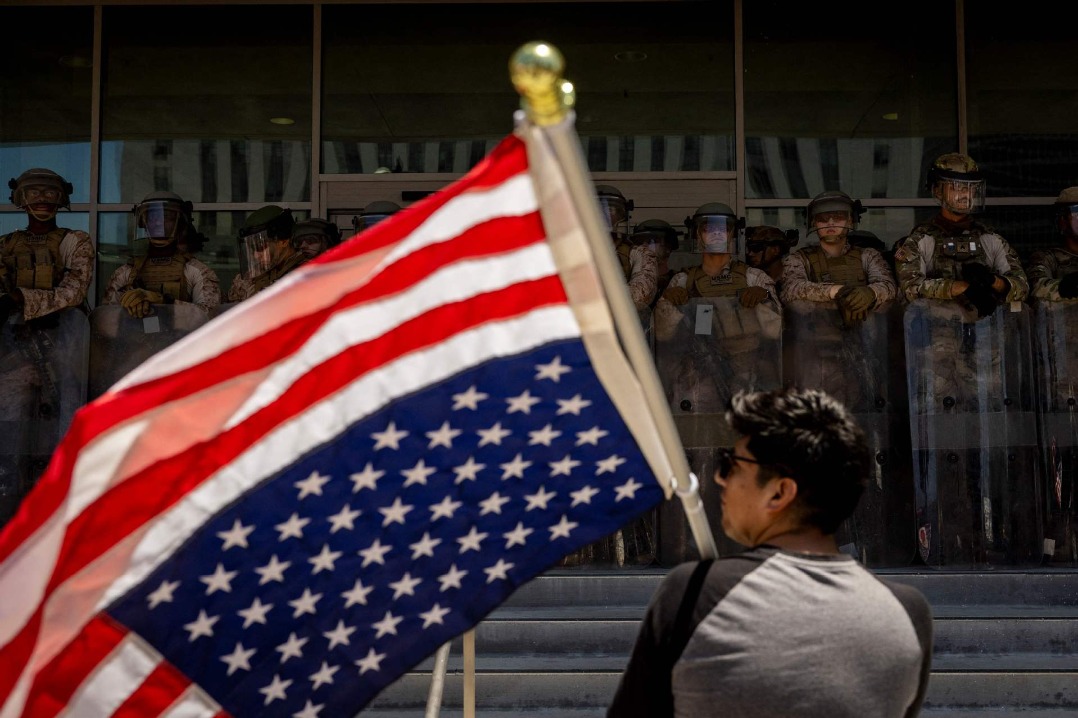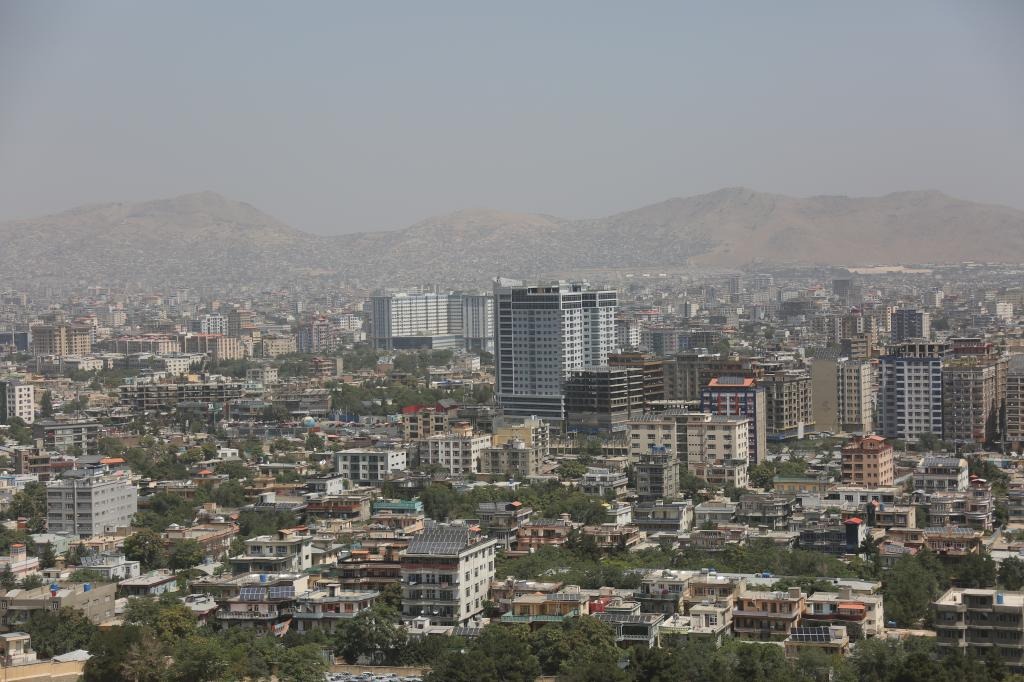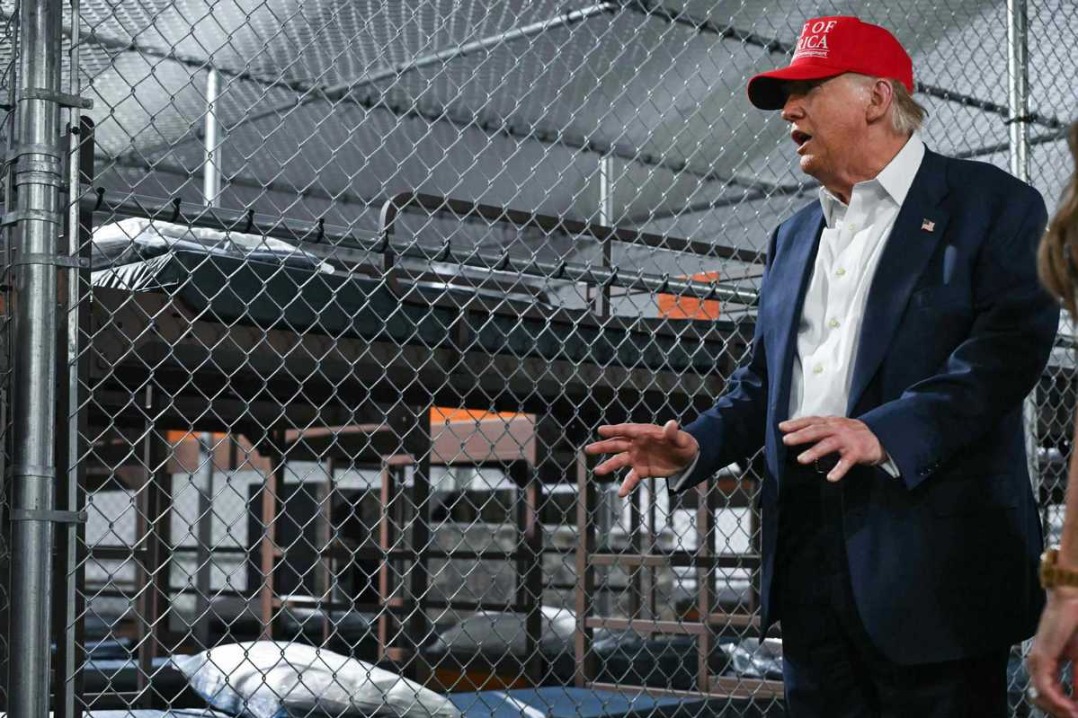Pandemic may result in prolonged recession


In unique circumstances like these, our ability to understand is very limited.
Amid the COVID-19 crisis, a number of things have occurred that haven't happened before: a global pandemic greater than anything we have seen in more than a hundred years, since the Spanish flu of 1918; the greatest economic slowdown since the Great Depression of the 1930s; a reduction in oil consumption, leading to a price war greater than ever; and the Federal Reserve and United States government response of many trillions of dollars.
Most people believe the curves describing the spread of the disease will flatten in most places soon. Some are flattening already. China is doing better and Europe is flattening now. The US is not yet flattening.
Now the question is whether the world is going to have an economic V-shaped recovery or something slower. My personal bias is that a serious recession could last a fair while. Weeks ago, Goldman Sachs was saying the GDP in 2021 would be greater than in 2019.Now, projections from Credit Suisse indicate that will not be the case, that instead 2021 GDP will be below that of 2019. That would not be so much a vigorous "V", but more of a gradual recovery.
Experts believe the GDP in the second quarter will be down 20 to 30 percent or more. We will have a prolonged recession, lasting at least two and perhaps three quarters.
What the Fed is doing will benefit the markets more than it will benefit the economy. I do not believe a depression will occur. We will have a serious recession. But when the disease is under control, the economy will come back at moderate speed.
In 1990 and 1991, we had the failure of private equity deals that had been done in the 1980s. In the 1980s, private equity deals were done with 95 percent or 96 percent debt and only a small percent of equity. That small amount didn't permit companies to get through when difficult times came with a recession.
In 2001 and 2002, the dot-com bubble burst. Telecommunications companies that had borrowed too much money to build optical fiber could not make it through tough times.
In 2008, we had the excesses in subprime mortgages, which were transmitted to the financial institutions by their investments in mortgage-backed securities. The subprime mortgages failed because they had been extended without any real justification.
When they failed and the securities melted down, financial institutions owned the bottom part of the capital structure, and they had enormous losses. It only took a 3 percent decline in their assets to wipe out their equity.
In all three cases, the triggers were in the financial system, not the "real economy".
This time, it is different. The global financial crisis of 2008 was similar to the current one in the sense that the effect was huge, and the threat was to the well-being of all financial institutions. But since it was merely financial, it was fixed with financial measures.
Now we are faced with COVID-19. The economy has been put into a coma so the disease can be cured. This is a unique experience for all of us.
One of the concerns when the coronavirus hit was with the fact that the Fed funds rate was only at 1.5 percent. That meant that if you didn't want to go negative, there were only 150 basis points of possible reduction, whereas most past interest rate regimes have amounted to about 500 basis points.
In the global financial crisis, it went from 5.25 percent in September 2007 to zero in January 2009-so in 16 months, 525 basis points. Now, there are only 150 basis points that can be cut before going into negative territory. The Fed took it all.
People were concerned about whether that would be inadequate. But there are so many other tools of monetary policy, and the Fed is obviously employing all of them.
So far as the markets are concerned, the Fed is making up for the lack of room with interest rates. The Fed has taken strong action in a number of creative areas, and the markets have responded.
The author is co-founder and co-chairman of Oaktree Capital Management, and a member of the International Council of the Global Asset Management Forum. The views do not necessarily reflect those of China Daily.

































